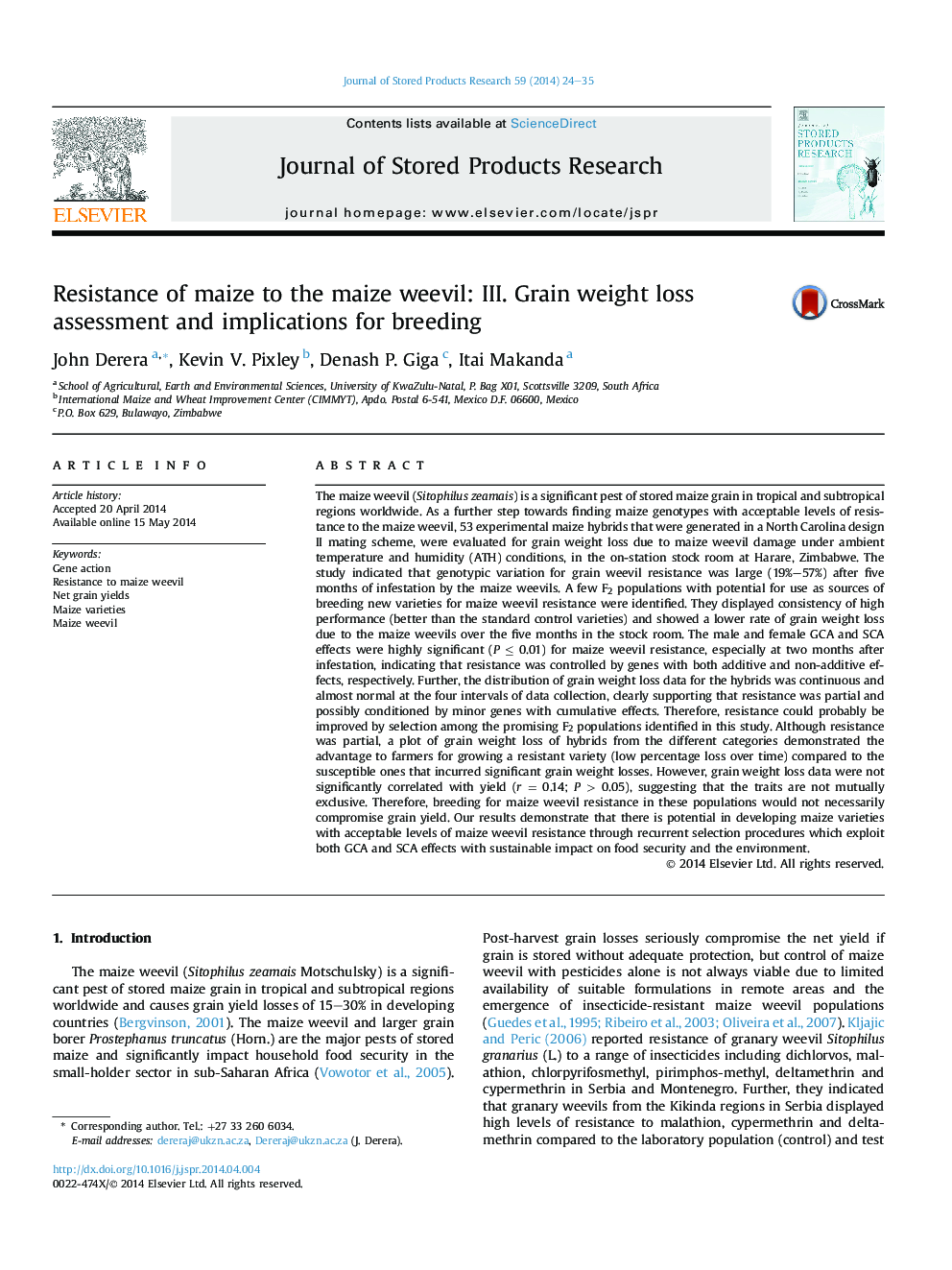| Article ID | Journal | Published Year | Pages | File Type |
|---|---|---|---|---|
| 6378397 | Journal of Stored Products Research | 2014 | 12 Pages |
Abstract
The maize weevil (Sitophilus zeamais) is a significant pest of stored maize grain in tropical and subtropical regions worldwide. As a further step towards finding maize genotypes with acceptable levels of resistance to the maize weevil, 53 experimental maize hybrids that were generated in a North Carolina design II mating scheme, were evaluated for grain weight loss due to maize weevil damage under ambient temperature and humidity (ATH) conditions, in the on-station stock room at Harare, Zimbabwe. The study indicated that genotypic variation for grain weevil resistance was large (19%-57%) after five months of infestation by the maize weevils. A few F2 populations with potential for use as sources of breeding new varieties for maize weevil resistance were identified. They displayed consistency of high performance (better than the standard control varieties) and showed a lower rate of grain weight loss due to the maize weevils over the five months in the stock room. The male and female GCA and SCA effects were highly significant (P â¤Â 0.01) for maize weevil resistance, especially at two months after infestation, indicating that resistance was controlled by genes with both additive and non-additive effects, respectively. Further, the distribution of grain weight loss data for the hybrids was continuous and almost normal at the four intervals of data collection, clearly supporting that resistance was partial and possibly conditioned by minor genes with cumulative effects. Therefore, resistance could probably be improved by selection among the promising F2 populations identified in this study. Although resistance was partial, a plot of grain weight loss of hybrids from the different categories demonstrated the advantage to farmers for growing a resistant variety (low percentage loss over time) compared to the susceptible ones that incurred significant grain weight losses. However, grain weight loss data were not significantly correlated with yield (r = 0.14; P > 0.05), suggesting that the traits are not mutually exclusive. Therefore, breeding for maize weevil resistance in these populations would not necessarily compromise grain yield. Our results demonstrate that there is potential in developing maize varieties with acceptable levels of maize weevil resistance through recurrent selection procedures which exploit both GCA and SCA effects with sustainable impact on food security and the environment.
Related Topics
Life Sciences
Agricultural and Biological Sciences
Agronomy and Crop Science
Authors
John Derera, Kevin V. Pixley, Denash P. Giga, Itai Makanda,
